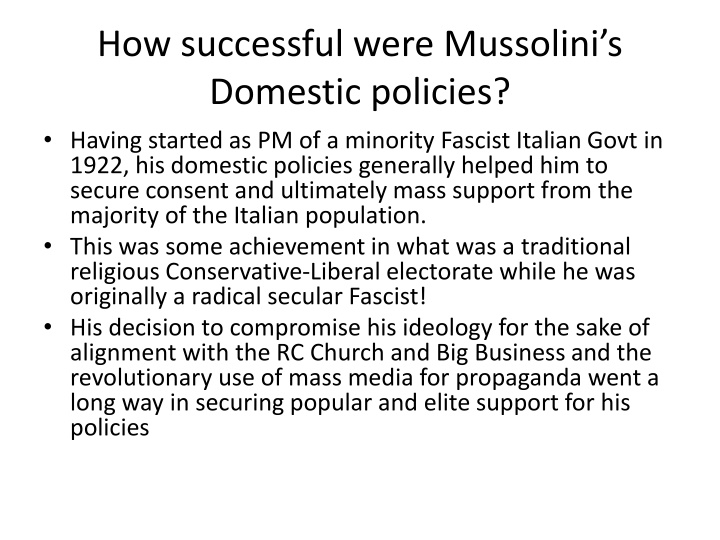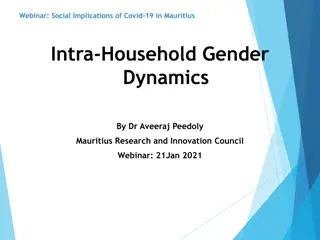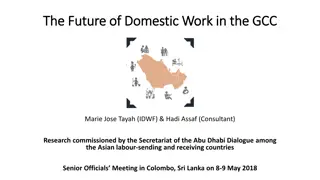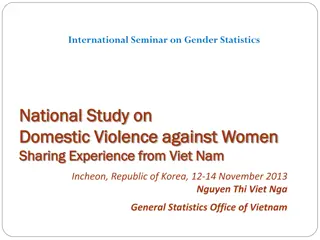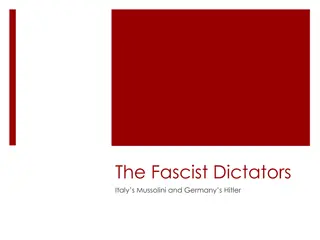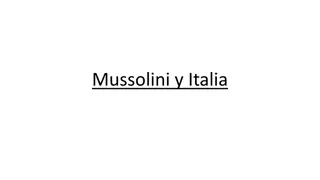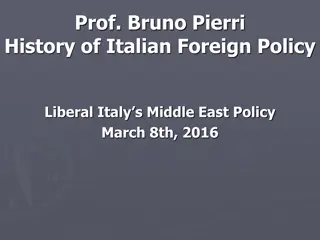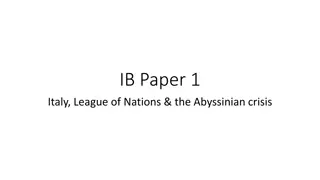Mussolini's Domestic Policies: Success and Challenges
Mussolini's domestic policies as Prime Minister of a minority Fascist Italian government included compromises to align with the Catholic Church and Big Business, utilizing mass media for propaganda. While successful in gaining popular and elite support, his economic initiatives for self-sufficiency faced challenges, leading to negative impacts on food production and trade. The implementation of corporatism suppressed worker rights and favored big business, establishing a strong government but facing social backlash.
Download Presentation

Please find below an Image/Link to download the presentation.
The content on the website is provided AS IS for your information and personal use only. It may not be sold, licensed, or shared on other websites without obtaining consent from the author.If you encounter any issues during the download, it is possible that the publisher has removed the file from their server.
You are allowed to download the files provided on this website for personal or commercial use, subject to the condition that they are used lawfully. All files are the property of their respective owners.
The content on the website is provided AS IS for your information and personal use only. It may not be sold, licensed, or shared on other websites without obtaining consent from the author.
E N D
Presentation Transcript
How successful were Mussolinis Domestic policies? Having started as PM of a minority Fascist Italian Govt in 1922, his domestic policies generally helped him to secure consent and ultimately mass support from the majority of the Italian population. This was some achievement in what was a traditional religious Conservative-Liberal electorate while he was originally a radical secular Fascist! His decision to compromise his ideology for the sake of alignment with the RC Church and Big Business and the revolutionary use of mass media for propaganda went a long way in securing popular and elite support for his policies
Economically Economically, Mussolini strove for self sufficiency (autarky); his Battle for Grain" was supposedly to increase the production of wheat within Italy. Much like Hitler he disliked the idea of Italy having to import goods as it led to strategic dependency not ideal in war time , etc. He forced farmers to prioritise the growing of wheat over all other crops. In the short term this did achieve his objectives of increasing wheat output however the long term effects resulted in a vastly lowered yield of vegetables, meat and dairy. Imports of wheat did decrease by almost 75%, however foreign imports of meats, vegetables and other foodstuffs increased dramatically. This caused an increase in price and damage to Italy's economy, indeed it was calculated that even with the decrease in price of wheat due to the increased output it would still have been cheaper for Mussolini to import all of its grain from the US. The 'battle' for Lira was equally unsuccessful. He was vainly attempting to heighten Italy's prestige both nationally and internationally by increasing the value of the Lira. Although this initially garnered a positive impression from the general Italian populace it caused a sharp decline in foreign trade as other nations realised the price for Italian exports were far greater than their actual worth. It also resulted in the closure of many small Italian businesses that could not compete with the larger corporations. This resulted in an increase in the general poverty of Italy
Corporatism Corporatism, or the 'Corporate state', marketed as taking the best elements from Socialism and Fascism, it sought to destroy class boundaries and everyone would 'pull together' for the national interest. Salvenimi looking in a dark room for a black cat which is not there Corporatism was rife with nepotism and embezzlement, with Mussolini openly favouring Big Business over the workers. In a political sense it was extremely successful, it denied workers the right to strike which was obviously extremely useful to Mussolini, it also gave him an excuse to suppress and disband most of Italy's unions, giving the government great power over industry. Hitler would do the same in Germany in 1933! However socially, it was a disastrous, workers were discriminated against and the elaborate system of appeal allowed any unwanted motion to be vetoed. In terms of establishing his power Mussolini was mildly successful with Corporatism, it established a strong government, which would be extremely difficult to challenge without a countercoup given the extreme difficulty workers would have striking and the power of the Fascist Secret Police.
The Catholic Church The Catholic Church. Fascism as a rule cannot exist with religion; at their root the two ideas are opposed. However this did not take into account the enormous influence that the Catholic Church had over Italy. By 1921 Mussolini had recognised that he required the Church's power to have any success as a dictator. The contradiction between Mussolini as a totalitarian leader and the Catholic Church, which saw itself as the spiritual and moralistic leader of Italy was one that was never resolved. The Lateran Treaties formalised an agreement between Mussolini and the Pope whereby he recognised the Vatican as a sovereign state, reparations were made for the seizure of Catholic land during the resorgimento (unification) and Catholicism would be taught in schools, something which Mussolini had openly opposed at the start of his reign. A strengthening of Church-Sate relations ironically introduced by a once secular radical Fascist was unexpected at the outset! There were still tensions between Mussolini and the church, with the pope being openly critical of his regime. The Church did cooperate with Mussolini to some extent the Pope even saying that "He has brought God back to Italy and Italy back to God". However Mussolini's concordat also angered the more radical elements within his own party who saw it as a betrayal. Koon argues that it was a period of "substantial collaboration" and although this is true, and the Lateran treaties did go a long way to legitimising his rule, his reversal of policy angered many and by 1931, Mussolini and the Pope had conflicted significantly over Catholic Action, resulting in the Pope being openly critical of his regime. Not strictly a failure given that Mussolini did gain the tacit support of the Church, the fact that this support was in direct contradiction to the principals that he supposedly stood for and the antagonism it created within his own party it was arguably another failure.
Social Socially Mussolini established several reforms. By this he was attempting to create a more powerful Italian state. For instance his battle for births, he aimed to increase the population of Italy from 40 million, to 50 million by 1950. He touted the 12 child family ideal and used loans and tax breaks to encourage the 'production' of children. He also introduced a system of quotas whereby a maximum of 10% of women were working in the public sector. The main problem with these aims was the practicality of it all. The demands of the economy meant that much of his ideological rhetoric went unrealised. Mussolini sought to create youth programs and organisations that would instil a sense of fascism in the Italian population. This was largely successful as heavily influenced by the HJ model under Baldur von Shirach! The Fasci Femminili, the main fascist group for women, spread socially reactionary policies and attitudes. The emphasis that Mussolini placed on the indoctrination of the Italian youth was substantial. Once again these were quite successful, by 1937; seven million had joined the ONB. Overall, Mussolini's social policy was relatively successful. His conservative values suited the majority.
